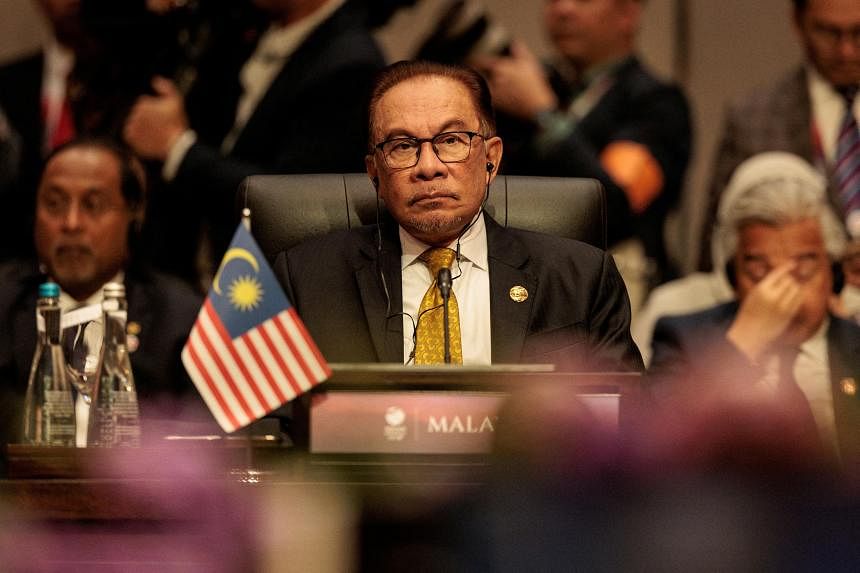KUALA LUMPUR – Malaysia’s plan to scrap pensions for new government employees has been hailed as a “brave move” to lower expenditure, but analysts warn it risks alienating Malay voters who make up the bulk of the country’s 1.7 million civil servants.
Pension payments for more than 900,000 retired civil servants are expected to cost the government over RM32 billion (S$9 billion) in 2024, accounting for more than 10 per cent of its forecast operating expenditure.
The bill is estimated to surge to about RM120 billion by 2040 if this plan is not implemented.
The new scheme is expected to be in place in 2024 and will require an amendment to the Federal Constitution, which Prime Minister Anwar Ibrahim can push through as he commands more than a two-thirds majority in Parliament.
The proposal to cut pensions for civil servants has been studied since the 1990s, but no sitting government had the political will to implement it, said Datuk Seri Anwar.
“There is a need for a new service scheme to avoid the risk of the country going bankrupt and future generations facing problems,” he said on Jan 28.
But analysts say the move comes with political risk for Mr Anwar’s unity government.
“It can lead to political suicide as the government may lose support in terms of votes, even though Mr Anwar is being honest in showing the reality of how the country might go bankrupt if the pension scheme continues for new employees,” said University of Malaya sociopolitical analyst Awang Azman Pawi.
The Pakatan Harapan alliance led by the Premier managed to garner only an 11 per cent vote share from the majority Malay community at the 2022 general election.
Meanwhile, a survey by independent pollster Merdeka Center in November 2023 showed that 81.1 per cent of Malays were dissatisfied with how Mr Anwar’s administration deals with economic issues.
“Slashing the pension scheme will likely be used by the opposition parties to rile up Malay voters who feel that they are deliberately being targeted because of their race,” Mr Halmie Azrie Abdul Halim, a senior analyst at political risk consultancy Vriens and Partners, told The Straits Times.
He said that the government has to walk the tightrope of securing and maintaining Malay support while making fiscal reforms.
“Although it is a brave move, these reforms may come at a cost, with civil servants expressing discomfort at working with the unity government. They may also seek to disagree with the politicians over the implementation of ongoing policies,” he said.
Currently, civil servants can either opt for the government pension scheme or contribute to the Employees Provident Fund (EPF), Malaysia’s retirement fund that is largely subscribed to by private sector workers.
Civil servants do not need to contribute monthly to the government pension scheme, and are entitled to a lifelong monthly payment upon retirement, calculated based on their last drawn salary and the number of years served.
When the retiree dies, the surviving spouse or children under the age of 21 will be eligible to receive the monthly pension.
In contrast, the EPF requires monthly contributions from workers and their employers, and the retirement funds saved in the EPF accounts can be withdrawn from the age of 55.
Savers can nominate beneficiaries for amounts left in their EPF accounts on their death.
